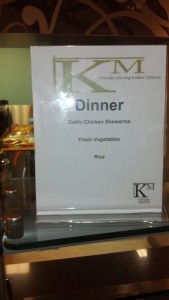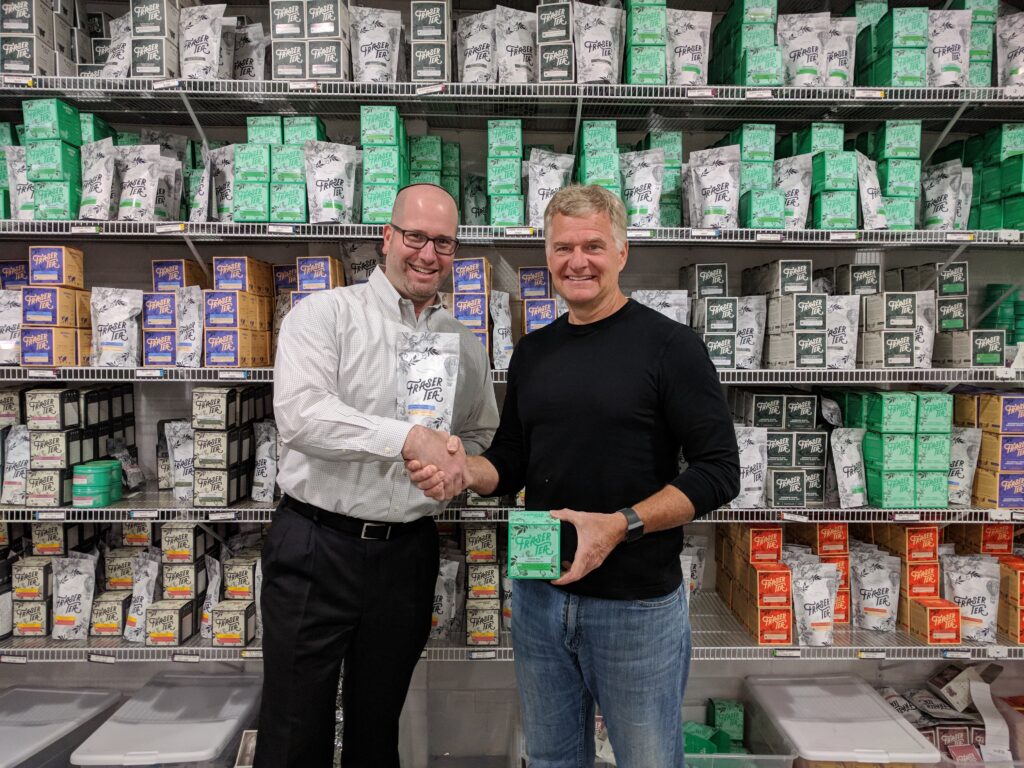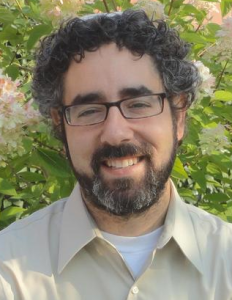When Avi Olitzky, a Conservative rabbi, moved from New York to Minneapolis in 2008, he quickly became frustrated with the relative dearth of kosher offerings in the Twin Cities. The options he did find — a dairy café, a meat deli, a kosher market and a couple bakeries — were costly and limited. “I began to explore the scenario here,” said Olitzky, who is the junior rabbi at the 1200-family Beth El congregation in St. Louis Park, Minn. “I came to the conclusion there was no move to expand the kosher options in town. There was a split between those thinking it was unnecessary, and those thinking we don’t have a community to support it.”
What Olitzky found, though, was that both opinions were “erroneous,” he said. The proof is the success of Olitzky’s MSP Kosher, a free of charge, kosher certification organization that the rabbi founded in 2010 as an alternative to the Orthodox-run Twin Cities Community Kashruth Council. Olitzky launched MSP Kosher, “not with the goal of breaking the Orthodox monopoly [on kosher supervision],” but to lower the cost of kosher food, to increase the quantity of kosher food, and to create transparency in kosher certification in the Twin Cities, he said. While historically, local kosher certification agencies in most cities have been run by Orthodox rabbis, more and more Conservative rabbis are stepping up to the plate in order to expand kosher dining options for their communities.
Olitzky’s MSP Kosher began its work with the certification of Sebastian Joe’s Ice Cream, “one of Minnesota’s real gems,” Olitzky said, noting that the ice cream maker was “invested in the cause,” and made “a lot of serious changes” in order to gain the certification of MSP. “Their sales went up exponentially,” Olitzky said, “and they credit it with going kosher.”
Since then, MSP kosher has certified several establishments around the Twin Cities, including a kosher hot dog stand at Target Field, which Olitzky said could only afford to become kosher because of MSP’s policy not to charge for certification, and because MSP allows it to remain open on the Sabbath and on Jewish holidays. “We got some flack in the press because it is non-glatt,” Olitzky noted, “but it’s kosher. It is open on Shabbat and yom tov, but we go in the next morning and blowtorch the grill. We know that with the arrangement we have, they can’t substitute in non-kosher products, but on the slight chance they do, we blowtorch.” Olitzky stressed that his goal in forming an alternative to the Orthodox-run Twin Cities Community Kashruth Council was simply to provide more kosher options in town.
Likewise, Conservative Rabbi Jason Miller founded Kosher Michigan in 2007 in order to offer more kosher options in the Jewish community of Metro Detroit, where kosher certification previously had been dominated by its Orthodox Vaad Harabbonim. Miller now certifies some 30 businesses as kosher, including bakeries, spice companies, and ice cream parlors, and oversees kosher catering for Michigan State University.
Having an alternative kashrut certification agency brings many advantages to a community, Miller said.
“It brings the cost of kosher food down significantly. When there is a monopoly, there is price gouging, and it’s not good for anyone,” he said. “The goal is to provide some competition to local certification without lowering standards, to make it easier to manufacture kosher food, and to create more dining options for those who keep kosher.”
 Miller entered the world of kosher certification as the year-round rabbi and kosher supervisor of Tamarack Camps, a large Jewish camping agency.
Miller entered the world of kosher certification as the year-round rabbi and kosher supervisor of Tamarack Camps, a large Jewish camping agency.
“Once I started doing that, businesses began calling me,” he said. “Some were not certified kosher because they couldn’t be — the owner was Jewish, but Reform, or open on Shabbat, and the Vaad wouldn’t certify them. There was a kosher butcher that was certified by the Vaad, but there were too many restrictions. They had to pay a mashgiach $15 an hour, even if they were closed. They couldn’t keep the keys to their own establishment.”
While the food these businesses were providing was indeed kosher, the business owners found it difficult to meet other requirements of Detroit’s Vaad — such as closing on Shabbat — and contacted Miller.
“There really aren’t any differences in standards [between Kosher Michigan’s supervision and that of Detroit’s Vaad],” Miller said. “The subtle difference is that I am more eager to certify Jewish-owned businesses open on the Sabbath.”
To do so, a document is created that sells the business to non-Jews during the 25 hours of the Sabbath. “This is a document used by the Orthodox as well,” Miller said, “although they are less apt to do so.”
The Rabbinical Assembly set up its own Conservative regional kosher supervision agency in the Mid-Atlantic region about 40 years ago, Rubin said, and it operated until last year.
“There was a need at the time,” Rubin said. “ And it grew. We had about 15 vendors. We were involved in kosher supervision for some time. Forty years ago or so, there was a pretty large Conservative community [in the Philadelphia area], and it was a more natural fit. Today the kashrut world has changed, and gotten more complex.”
And so kashrut supervision in that region is now, for the most part left to the Orthodox.
“We realized over time it was a bigger project than we could handle,” Rubin said.
Conservative rabbis did not really enter the world of kashrut supervision until the 1990s, said Rabbi Paul Plotkin, chair of the subcommittee on kashrut of the Rabbinical Assembly’s committee on Jewish law and standards.
“When I was at seminary as a student in the early ’70s, there wasn’t a lot of time allotted for training in kashrus supervision,” Plotkin recalled. “The attitude was, ‘don’t worry about it, the Orthodox will handle it.’ But by the time the ’90s came, I came to see there were all kinds of times Conservative rabbis were called to do supervision, but many of them didn’t have the practical training. So I argued for a number of years that we had an obligation to teach our colleagues who were called on for kosher supervision.”
In 1990, the Rabbinical Assembly ran its first kosher supervision-training program. Eighty rabbis came from all over North America to take the four-day course.
“It proved what I’d been saying,” Plotkin said. “There was a need and a demand for it.”
The purpose of the training was to teach Conservative rabbis how to supervise kashruth operations when there was not an Orthodox alternative in a given community.
“In the ’90s, Chabad didn’t have the footprint it has now,” Plotkin said, “so in a lot of towns, the Conservative rabbi was the most traditional rabbi in the area. That’s how it started. It was never the idea that this would be a big, national thing, and I don’t think it ever will be. If you want to produce a product, and sell it all over, I am not doing you a favor by having you hire me. Most people won’t accept me in the market you want to use me. If everyone will eat O-U, and 10 percent will eat Plotkin, why use Plotkin?”
Plotkin currently certifies two facilities: a Dunkin’ Donuts, and Ben’s Deli in Boca Raton, Fla. Unlike many kosher certifiers, Plotkin does not charge for his services, but instead does it to “enhance life for my community,” he said.
He was contacted by the owner of Ben’s, Ronnie Dragoon, after Dragoon saw an article Plotkin wrote for United Synagogue Review, in which he argued against the imposition of more stringent kashruth standards that work to limit kosher options.
“I wrote we should have a new certification: K-E, for ‘kosher enough,’ ” he said. “There is a segment of the population that wants to make more rules, and make keeping kosher more costly. They’ve blackballed everyone else, with the attitude that ‘if you don’t rise to my level, we won’t take you seriously.’ If we continue this, we will have less and less food, at more and more outrageous prices.”
Plotkin agreed to certify Ben’s, although Dragoon already had an Orthodox certification. Even so, it took Dragoon three years to work through all the changes Plotkin insisted upon before the Conservative rabbi would certify Ben’s as kosher.
Dragoon has maintained the Orthodox certification alongside his certification from Plotkin, in order to satisfy an Orthodox clientele that will not rely solely on a Conservative rabbi.
“I have had an increase in business with Rabbi Plotkin, because he is very well known and respected in South Florida,” Dragoon said. “But I’d be less than candid if I said I’d be comfortable with only a Conservative heksher, because I know some Orthodox people wouldn’t be comfortable with it. But Rabbi Plotkin is at least as strict as the Orthodox rabbi.”




 On behalf of the Michigan Region of the Rabbinical Assembly, I am writing to voice our support for
On behalf of the Michigan Region of the Rabbinical Assembly, I am writing to voice our support for